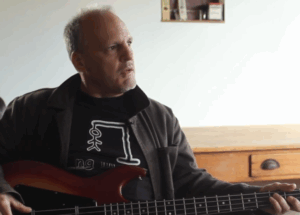Paul McCartney Teams Up with Kate Bush and Cat Stevens for a Surprising New Album Release — With an Unexpected Twist

Photo by Jimmy Baikovicius from Montevideo, Uruguay, CC BY-SA 2.0, via Wikimedia Commons
A Silent Album With a Clear Message
Earlier this year, more than a thousand major artists “collaborated” on an album unlike anything released before. The record, Is This What We Want?, arrived in February 2025 with 12 tracks made up only of silence and bits of background noise. When the titles of the tracks are read in order, they form the full sentence: “The British Government must not legalise music theft to benefit AI companies”.
The tracks were not credited to specific writers, but the album listed over 1,000 contributors. Well-known figures such as Kate Bush, Billy Ocean, Yusuf/Cat Stevens, Annie Lennox, Hans Zimmer, and members of The Clash were included. The collection drew attention because of both its format and its message about how AI models use creative work.
Paul McCartney Adds His Own Silent Track
Paul McCartney, long outspoken about fair treatment of artists in the age of AI, has now added his own piece to the project. His contribution, titled “bonus track”, runs for two minutes and 45 seconds and contains no instruments or vocals. Instead, it features faint studio sounds, matching the theme of quiet protest set by the original release.
This track will appear on the vinyl edition of Is This What We Want? The album itself previously reached number 38 on the UK Albums Downloads Chart, showing that even a noise-based project can find an audience when tied to a larger issue.
The Movement Behind the Music
The idea for the album came from composer Ed Newton-Rex, who works at Stability AI and oversees Fairly Trained, a non-profit that certifies AI models that properly work with copyright holders. He has been vocal about his concerns regarding the UK government’s proposals related to training data.
Newton-Rex explained: “The government’s proposal would hand the life’s work of the country’s musicians to AI companies, for free, letting those companies exploit musicians’ work to outcompete them.” He added: “It is a plan that would not only be disastrous for musicians, but that is totally unnecessary: the UK can be leaders in AI without throwing our world-leading creative industries under the bus.”













